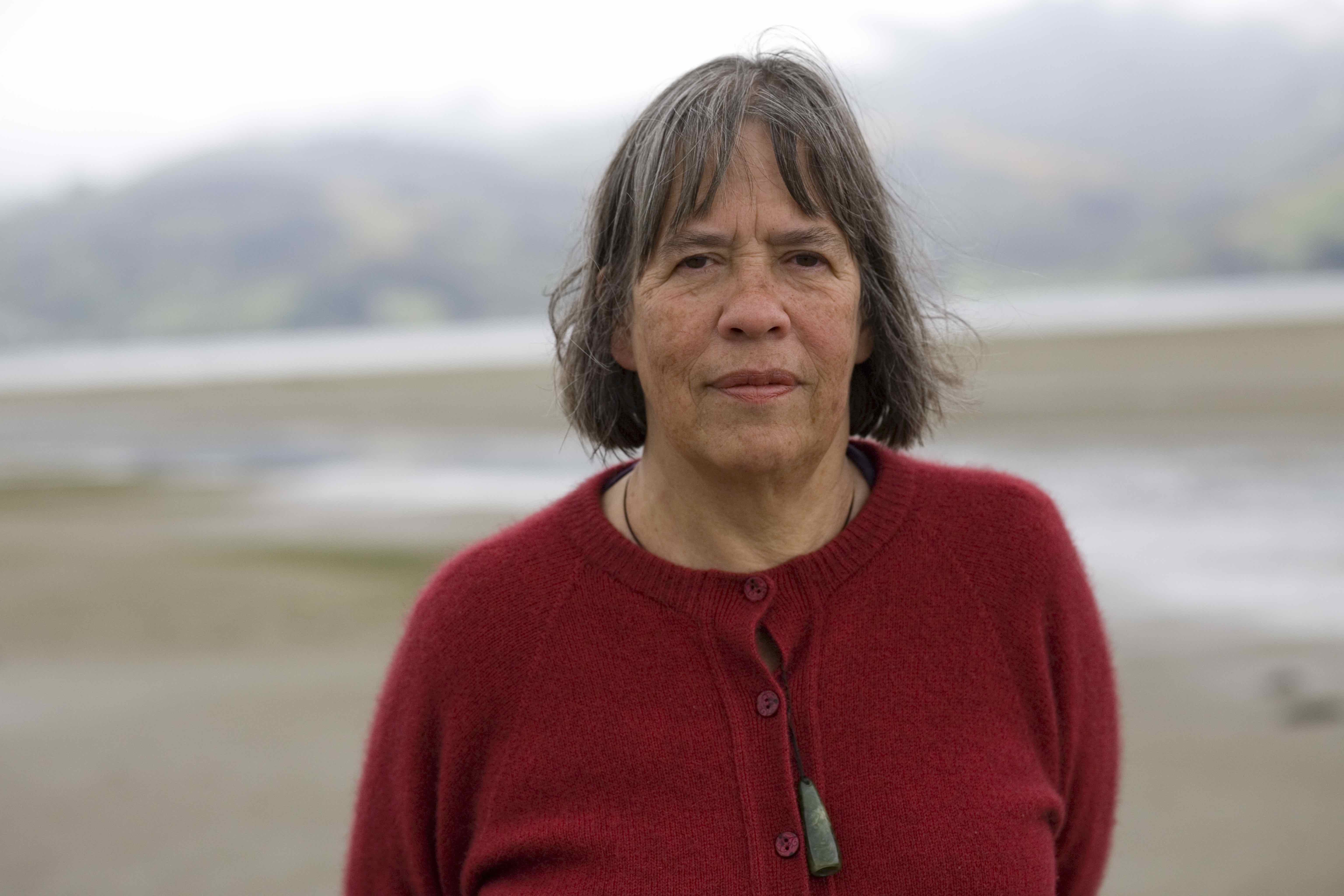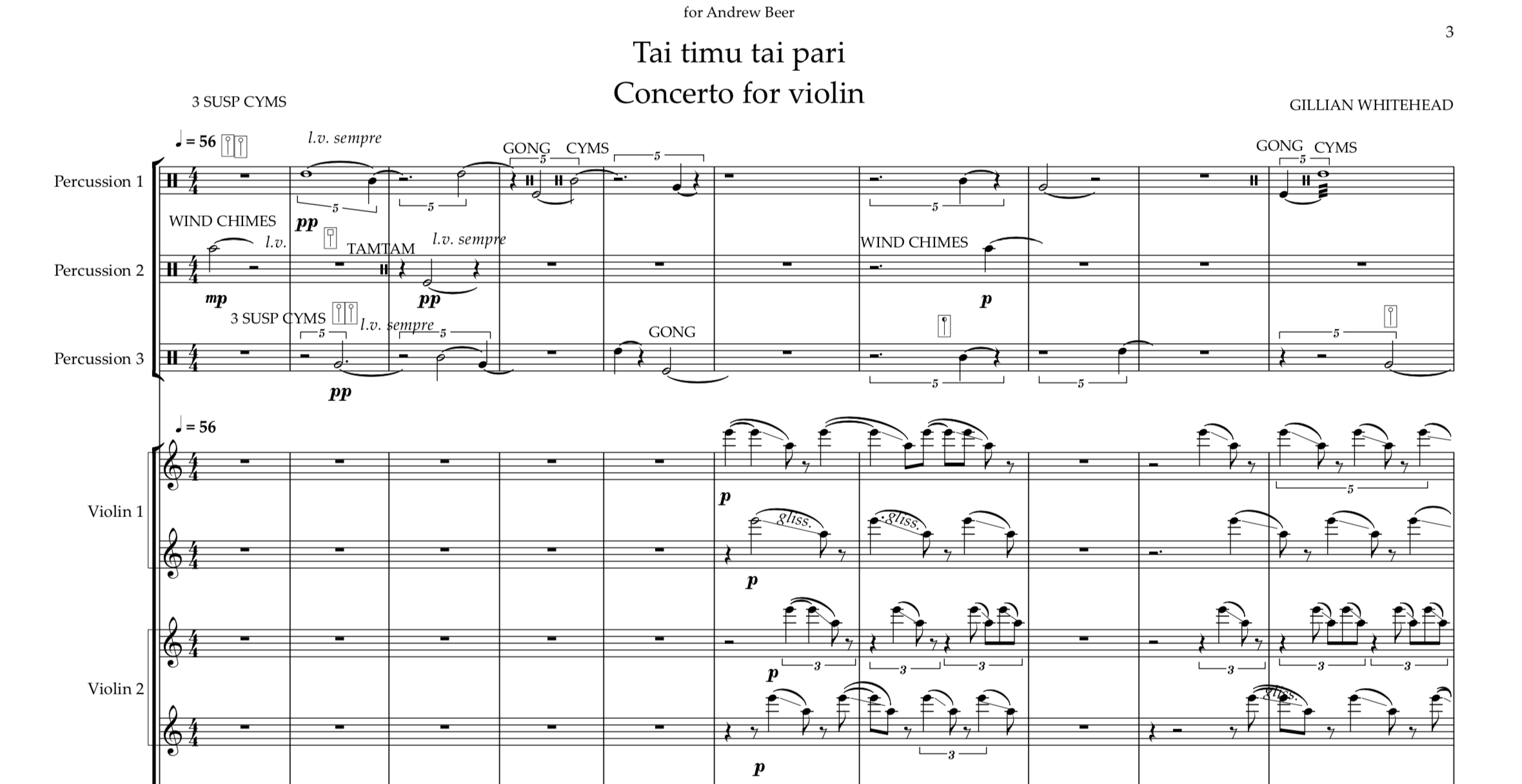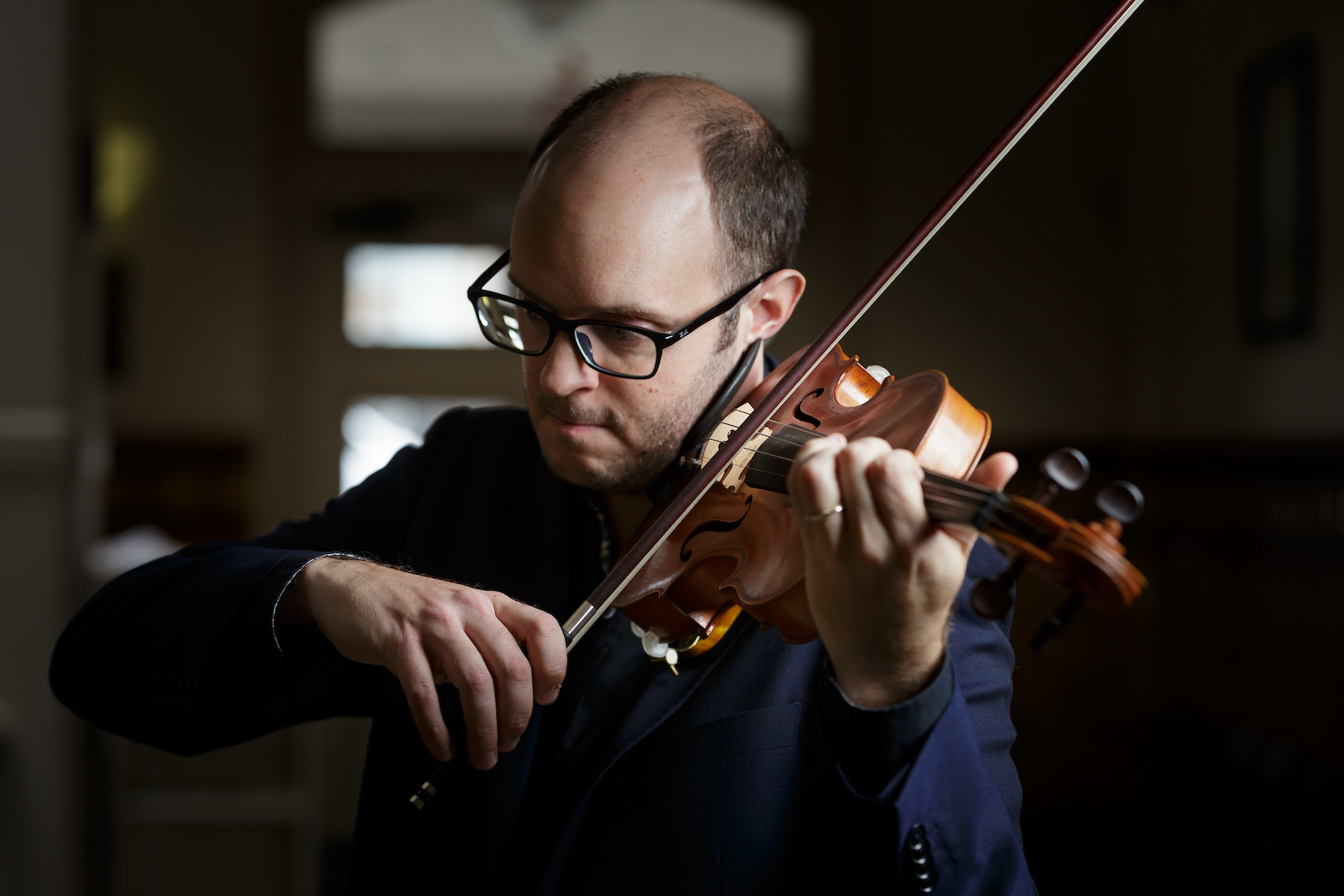
Photo: Gareth Watkins
Dame Gillian Whitehead's new violin concerto Tai timu, tai pari will be premiered on Friday 10 June 2022 by the Auckland Philharmonia Orchestra, conducted by James Feddeck, with the work's dedicatee APO Concertmaster Andrew Beer as soloist. If you can't be there in person, the performance will be livestreamed on the APO's website and Facebook page, and also live broadcast on Radio New Zealand Concert. We caught up with Gillian and Andrew to learn more about Tai timu, tai pari.
How did the possibility to write Andrew a concerto come about?
Gillian Whitehead: I was approached about three years ago by the Auckland Philharmonia who offered me a commission to write a violin concerto for Andrew. I’d always wanted to write a violin concerto and very much admire Andrew’s playing and his musicianship, so I was delighted.
Tell us about Tai timu, tai pari.
This was the first piece I’d started after the initial Covid lockdown, and I think because we had to go into survival mode for a couple of months, I initially found a sort of self-censorship, only wanting to write very minimal and pleasant sounds, not at all the stuff of orchestral or concerto writing. My studio on the Otago peninsula is close to the harbour, and looks out over sand flats where the tide ebbs and flows, and seabirds flock and eat and squabble and take flight, and the light on the water constantly changes with the wind and the clouds. So images from that landscape were my starting point. (I wrote the piece partly there, and partly in Ruakaka in Northland.) That’s only the starting point of course - composing is really about balancing sonic elements and shaping the direction and flow and balance of sound to make a hopefully convincing formal structure.

Gillian Whitehead: Tai timu, tai pari, bars 1-10, percussion and violins.
How does living on the Otago Peninsula affect your work?
The first place I saw in Europe, having travelled by train from Britain, was Salzburg. Walking there, I was struck by the thought that Mozart just had to have lived there; the sounds of the place were somehow reflected in his music. But the work of Haydn was different - it was primarily about exploration of craft. I think some composers are more influenced by the sounds around them than others. And living on the peninsula close to the water, with the predominant sounds of wind and bird life, does affect some, but not all, of my writing.
How did you approach the roles of the soloist and orchestra?
In the music I wrote in Europe and Australia, I would usually start with a plan, with a web of pitches that would span the work and govern the detail of the music. With more recent pieces, I’ll start with something small - a few notes, a rhythm, an instrumental colour, and build a structure outwards from that. In Tai timu, tai pari, I started with the first violin entry, which I wrote in Ruakaka before travelling south to Harwood on the Otago peninsula. From there I worked backwards and forwards, shaping the piece, continually revisiting the opening until I was reasonably satisfied with it, then progressing the piece but continually tweaking or altering to find a better balance, with the soloist sometimes a protagonist, pitted against the orchestra or a particular instrument, sometimes aligned with the orchestral sound, sometimes elaborating or expanding or decorating or contradicting a musical idea.
Could you describe the process of collaborating on this piece? Did you seek out Andrew’s advice while you were writing?
We met three or four times to talk over what I’d written, about practical and interpretative matters, and I made a few changes, for musical or technical reasons. It was a very satisfying way of working for me, and I think for Andrew.
You’ve written a lot of music for strings (and were a string player yourself at one time). How would you describe your relationship to the violin?
The violin is an instrument which is special to me, partly because I learnt it as a child and because I heard a lot of violin music as my mother accompanied a fine violinist, Aage Nielsen, who lived and taught in Whangārei where I grew up. The instrument has such a wide range of expressive and dynamic potential that I really enjoy exploring.

Photo: Adrian Malloch
What drew you to Gillian’s music?
Andrew Beer: My first introduction to Gillian's music was playing the orchestral piece The Improbable Ordered Dance with the APO. The next encounter was with Tōrua, the duo piece featured on the CD 11 Frames with Sarah Watkins. In both instances, I found Gillian's music rich, evocative and engaging. I also found both her orchestral and violin writing outstanding, so was surprised to learn she had never before written a Violin Concerto!
How did your interest in new music begin?
Slowly over time, with each experience as a student fomenting heightened interest. A pivotal moment was probably meeting Mario Davidovsky during my Master's degree, in preparation for a performance of his Concertino for Violin and Orchestra. This was one of the great composers of our time, of Synchronisms fame, and naturally I was nervous to meet him, but he was such a lovely, warm-hearted and helpful person. The encounter was so much fun, I became keen to meet and work with many more composers!
What do you enjoy about playing new pieces and working with composers?
The fact that interpretative decisions are no longer guess-work. It's fantastic to always be able to know exactly what a composer intended with each passage of a piece. In most cases, composers are surprisingly open to interpretive compromises, but it's still so reassuring to know the composer's intentions. I also find it so very important to put my very best into the performance of contemporary works - the composers put their heart and souls into the creation of these works, and they deserve just as much attention as Bach, Mozart and Beethoven.
How do you prepare for a premiere of a big new work? Have you had a concerto written for you before?
This is the first time a Concerto has been written for me. It's an extraordinary honour - massive thanks to Gillian and the APO! The preparations of the solo violin part are, for me, very similar to the preparations with older Concerto repertoire. However, the study of the score is far more intense and thorough - as nobody knows how the piece goes, it's really important to know the score inside-out before the first rehearsal.
How has the long delay of the premiere affected the way you approach the piece? Has your interpretation of it changed over that time?
Yes, although it was sad at the time that it wasn't premiered last year, it gave the opportunity for the work to "simmer" for a year. It's incredible how muscle memory keeps the practice preparation fairly well even after a year, while the simmering time also helped me realize that some of my technical (fingering and bowing) and musical (phrasing) decisions last year weren't ideal. Soon I'll also meet with Gillian and go through the piece together, which I'm sure will bring to light further room for improvement as well!
The premiere of Tai timu, tai pari will be livestreamed at 7:30 on Friday 10 June 2022 on the APO website and on the APO Facebook page.
